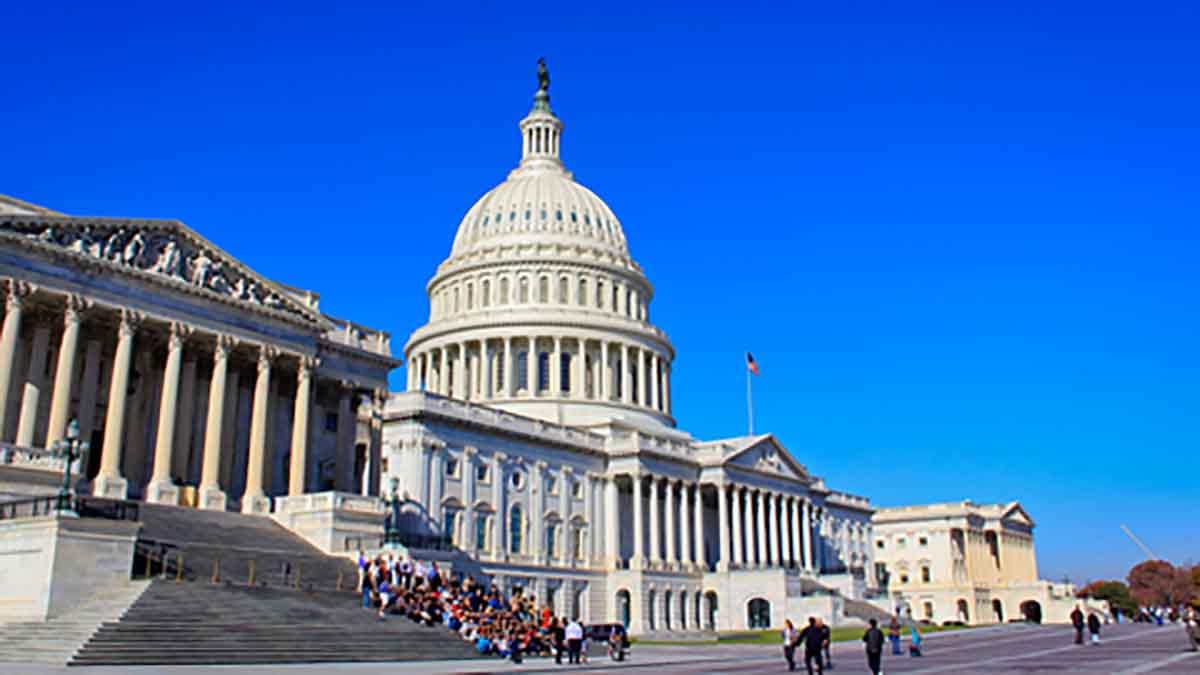New Administration Brings Heightened Workplace Protections for LGBTQ+ Employees
This article was originally published to the Archbright Blog on 5/25/21.
3 min read
 Erin Jacobson JD
:
Jul 26, 2023 11:47:44 AM
Erin Jacobson JD
:
Jul 26, 2023 11:47:44 AM

The United States Supreme Court issued several decisions in June, at the close of its 2022-2023 term, that either directly or potentially impact employers. The first two cases discussed below directly impact employers. The other two are tangential to employers and are worth watching for future developments that could have a more direct impact.
In Glacier Northwest v. Teamsters Local 174 (June 1, 2023), the Court held in favor of the employer, clarifying a limitation on a union’s right to strike under the National Labor Relations Act (NLRA). In this case, the union initiated a strike after several of the employer’s concrete trucks had been loaded and not yet delivered. The loaded and undelivered concrete was then useless and needed to be disposed of, resulting in a financial loss to the employer. The employer sued for damages from the union, which claimed that its right to strike preempted the employer’s claim for property damage.
The Washington Supreme Court agreed with the union, stating that the employer’s product loss was merely incidental to an NLRA-protected strike. However, the United States Supreme Court noted that the right to strike is not absolute and does not protect strikers who fail to take reasonable steps to safeguard employer property. In this case, the union called the strike at precisely the time it knew would result in employer loss of property, so the NLRA did not protect it from suit by the employer.
The Court’s decision, in this case, was based on specific facts, notably that the union orchestrated the timing of the strike in an apparent attempt to maximize the loss of employer property, i.e., after the concrete trucks were loaded for the day. While narrow in application, it is helpful to employers who may experience loss of property due to (rather than incidental to) a union’s strike tactics.
In Groff v. DeJoy (June 29, 2023), the Court created a new standard for employers evaluating employee religious accommodation requests. Under this new standard, employers may not deny a requested religious accommodation unless it would substantially burden the employer’s business. For additional information on this landmark case, see Archbright's blog post on the new standard.
In Students for Fair Admissions, Inc. v. President and Fellows of Harvard College (June 29, 2023), the Court concluded that colleges and universities may not use an applicant’s race as a preferential factor for admission. While this decision does not directly or immediately impact affirmative action programs in employment, it will likely spur questions and concerns from employers.
The decision does not directly impact employers’ affirmative action programs because these programs aim to increase workforce diversity through recruitment and other efforts, as opposed to using race as a decision-making criterion when evaluating one applicant against another. In other words, the type of affirmative action outlawed in the Harvard case was already unlawful for employers, so this case technically changed nothing for employers. The Equal Employment Opportunity Commission (EEOC) Chair, Charlotte A. Burrows, said in a statement released the same day as the Court’s opinion: “It remains lawful for employers to implement diversity, equity, inclusion, and accessibility programs that seek to ensure workers of all backgrounds are afforded equal opportunity in the workplace.”
Although it has no direct applicability to employers, it may ultimately have an impact. First, it may prompt questions from employees and others who express concern about employers’ current programs. This means employers must continue to follow the existing and longstanding limitations on their affirmative action programs by seeking to increase diversity through recruitment efforts rather than through hiring quotas or using race as a decision-making factor. Second, it could prompt further legal action directly impacting employers, so it remains an area to watch.
In 303 Creative v. Elenis (June 30, 2023), the Court favored a website designer’s religious freedom to deny access to wedding website design services by couples other than one man and one woman. At issue was a Colorado state law prohibiting public accommodations from denying goods and services to any customer based on protected characteristics, including sexual orientation. The lower courts concluded that this state law could be enforced to prohibit the website designer from denying services to same-sex couples; however, the Supreme Court held that the First Amendment’s right to religious freedom prevented the state from forcing the website designer to create websites expressing messages with which the designer disagrees.
It is important to note the limitations of this fact-specific ruling. It did not overturn the state law prohibiting denial of services based on sexual orientation. Rather, it held that in the fact-specific case of a creative design service, such as the wedding website design service at issue, the designer cannot be compelled to create speech contrary to the designer’s religious beliefs.
Like the affirmative action case discussed above, this case does not directly or immediately impact the employer-employee relationship. Federal and state employment laws prohibit employers from discriminating against applicants and employees based on sexual orientation, and this case does not change or minimize those protections in any way. It could, however, set the stage for future challenges from certain employers (such as religious organizations) or employees (such as those who disagree with their employers’ anti-discrimination policies) seeking to stretch the scope of this ruling to apply to the workplace.
The Supreme Court has begun docketing cases for its 2023-2024 term, starting on October 2. Among the cases already accepted for review are two employment-related cases:

This article was originally published to the Archbright Blog on 5/25/21.

The holiday season is in full swing, and HR professionals know that means it's crunch time to wrap up any necessary end-of-year tasks and prepare for...
.jpg)
The Occupational Safety and Health Administration (OSHA) requires many organizations with 11 or more employees to follow recordkeeping requirements,...